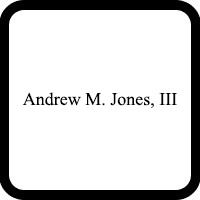Tigerville Land Use & Zoning Lawyer, South Carolina
Not enough matches for Tigerville Land Use & Zoning lawyer.
Below are all Tigerville Real Estate lawyers.
Paul E. Hammack
✓ VERIFIEDAccident & Injury, Slip & Fall Accident, Premises Liability, Workers' Compensation
Our purpose is to help people injured in truck accidents, auto accidents and on the job injuries.
I worked for insurance companies for 15 years. In 2015 I decided to put that experience to work representing injured people. I finally have joy in m... (more)
W. Chris Castro
✓ VERIFIEDCriminal, Landlord-Tenant, Lawsuit & Dispute
Fighting for Your Rights.
Attorney W. Chris Castro is a solo practitioner and the founder of the Castro Law Firm, LLC located in Greenville, South Carolina. His practice prima... (more)
Andrew M. Jones
✓ VERIFIEDDivorce, Real Estate, Landlord-Tenant, Accident & Injury, Estate
Andrew M. Jones, III is a practicing lawyer in the state of South Carolina. Attorney Jones received his J.D. from the University of South Carolina Sch... (more)
Ariella Anna Carver
Real Estate, Traffic, Estate, Criminal
Status: In Good Standing Licensed: 8 Years
Mitchell King Byrd
Real Estate, Business & Trade, Professional Responsibility
Status: In Good Standing Licensed: 20 Years
John M. Rollins
Real Estate, Wills & Probate, Family Law, Criminal
Status: In Good Standing Licensed: 36 Years




